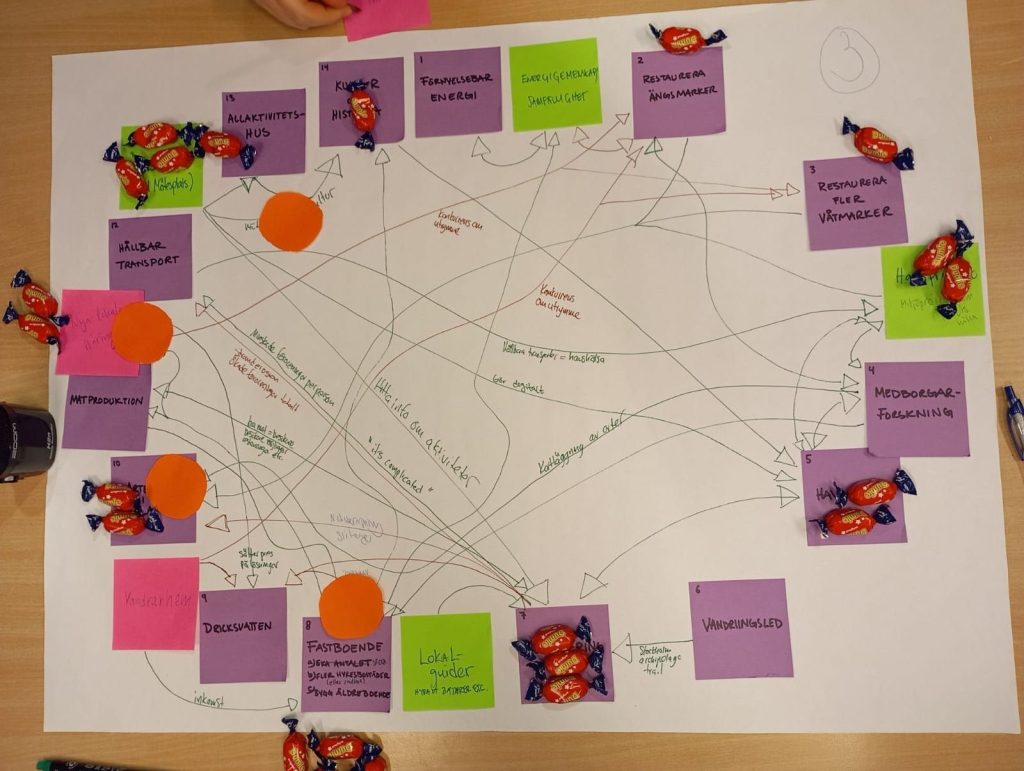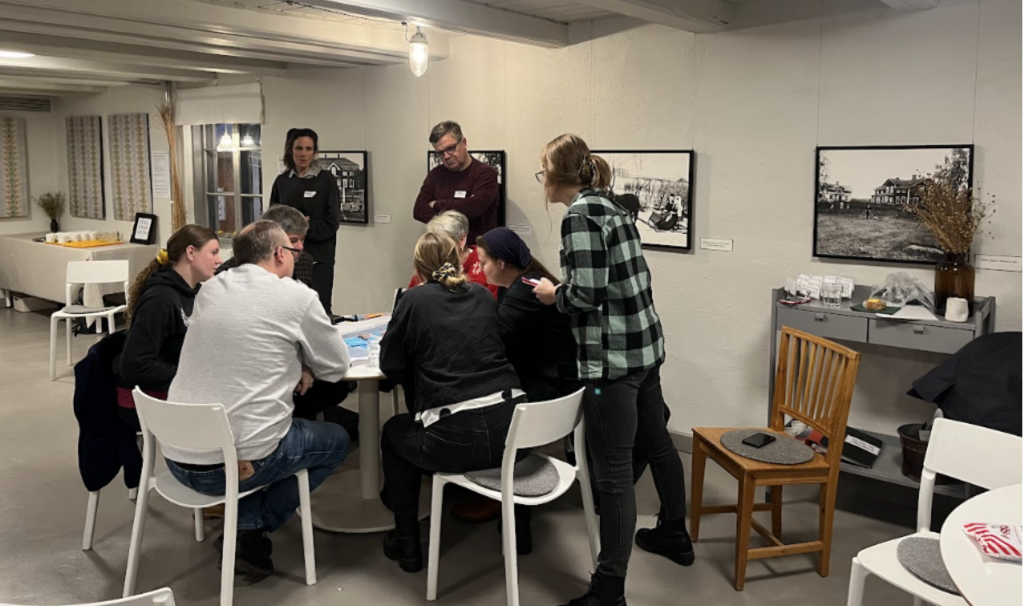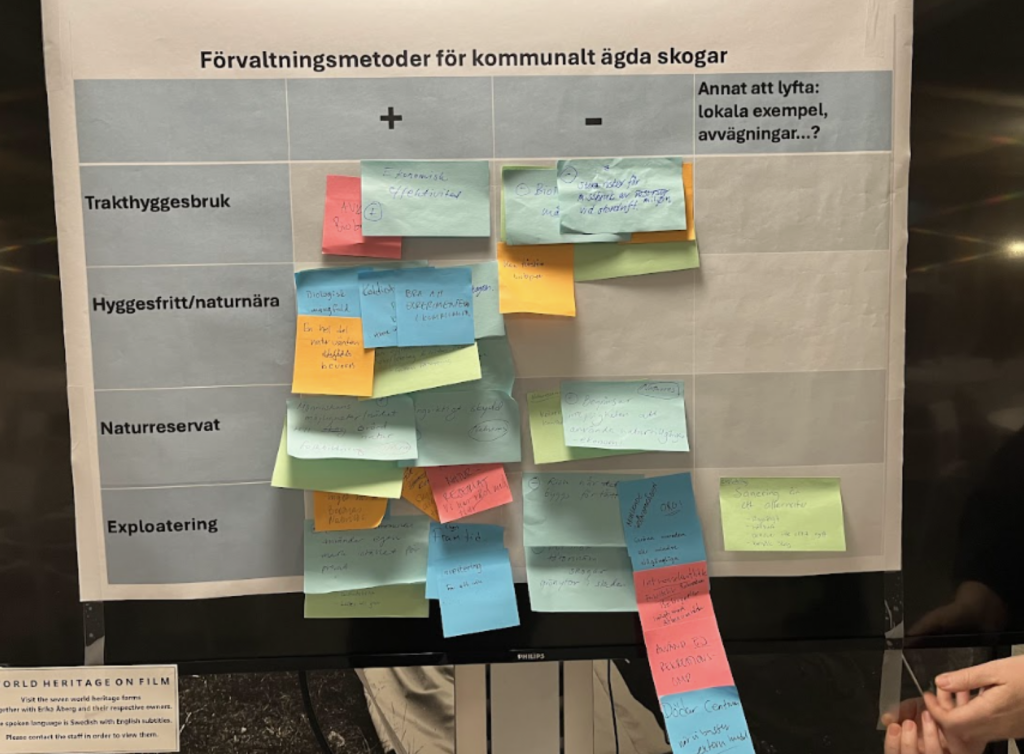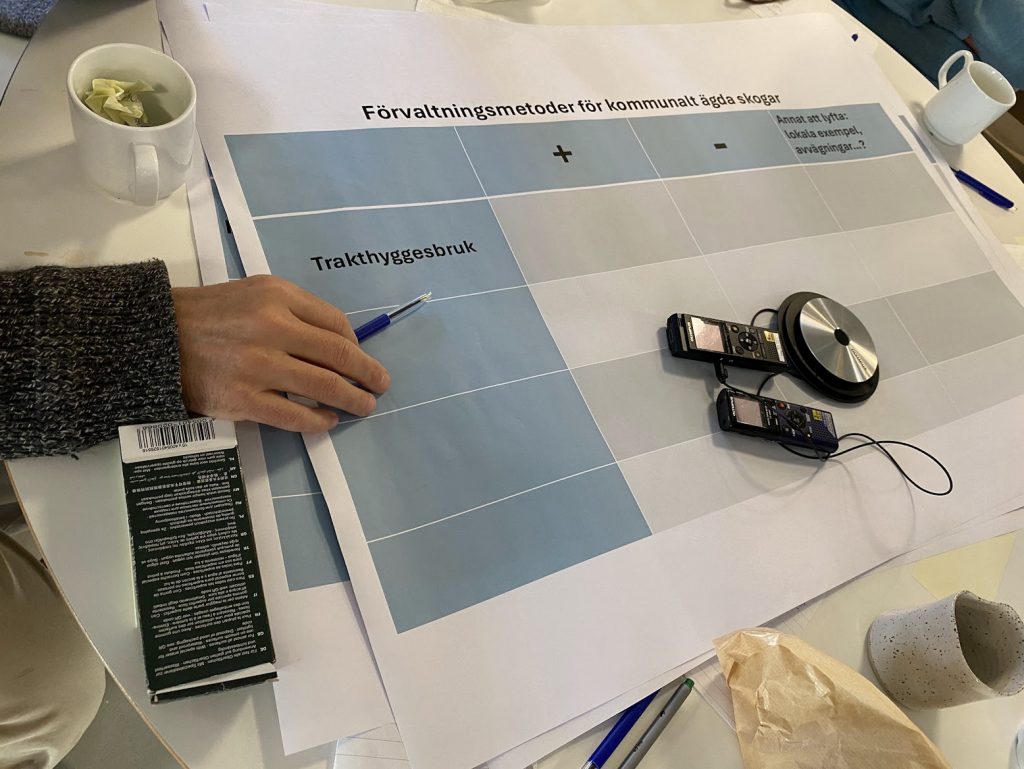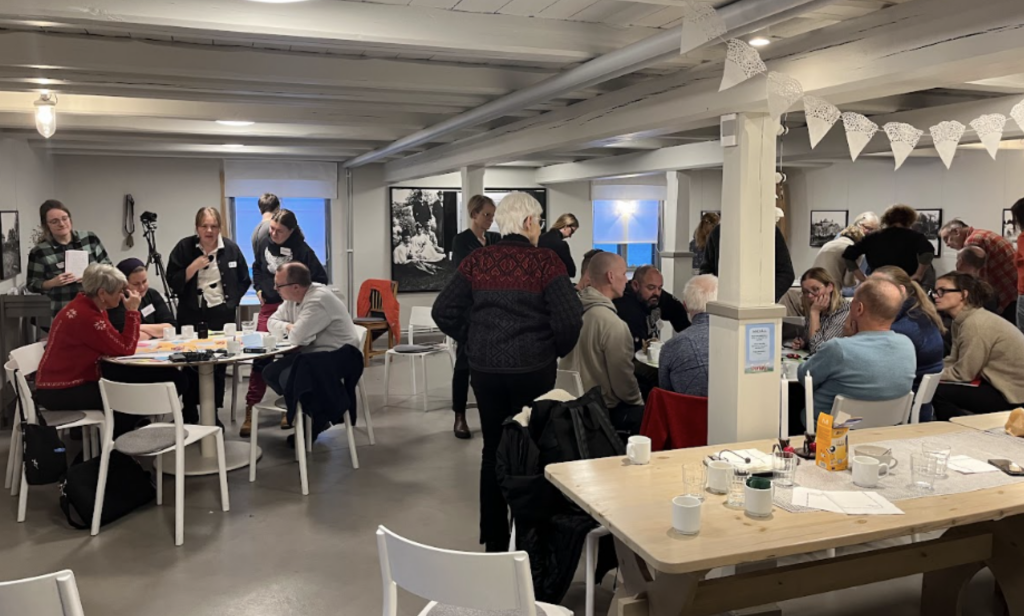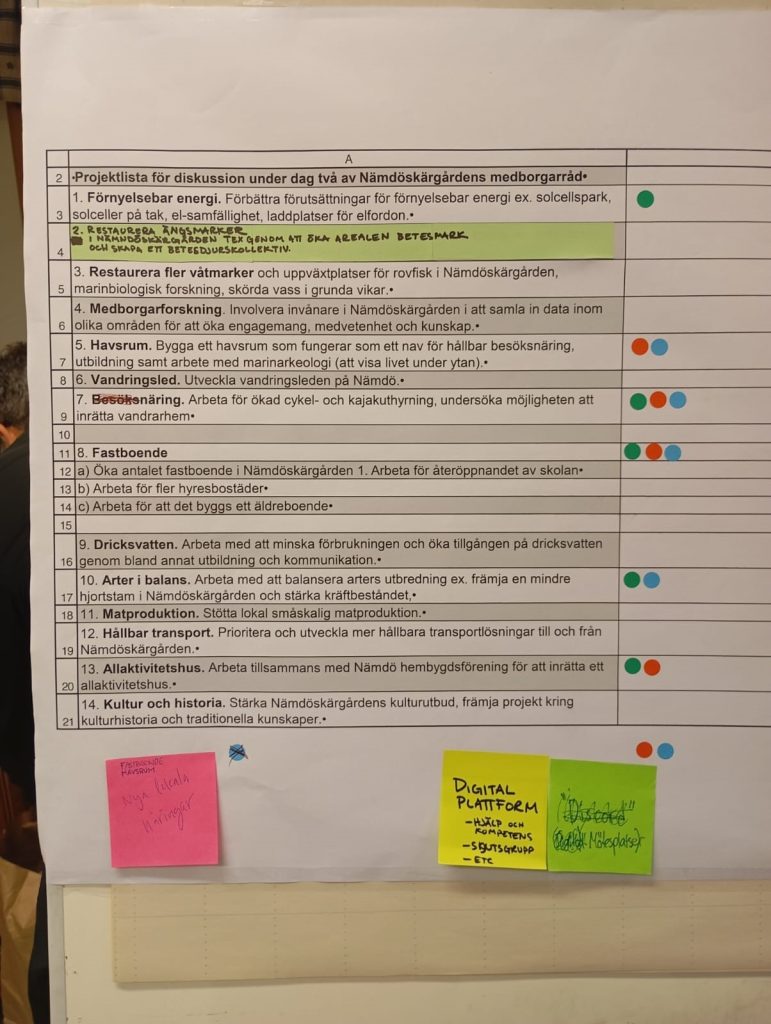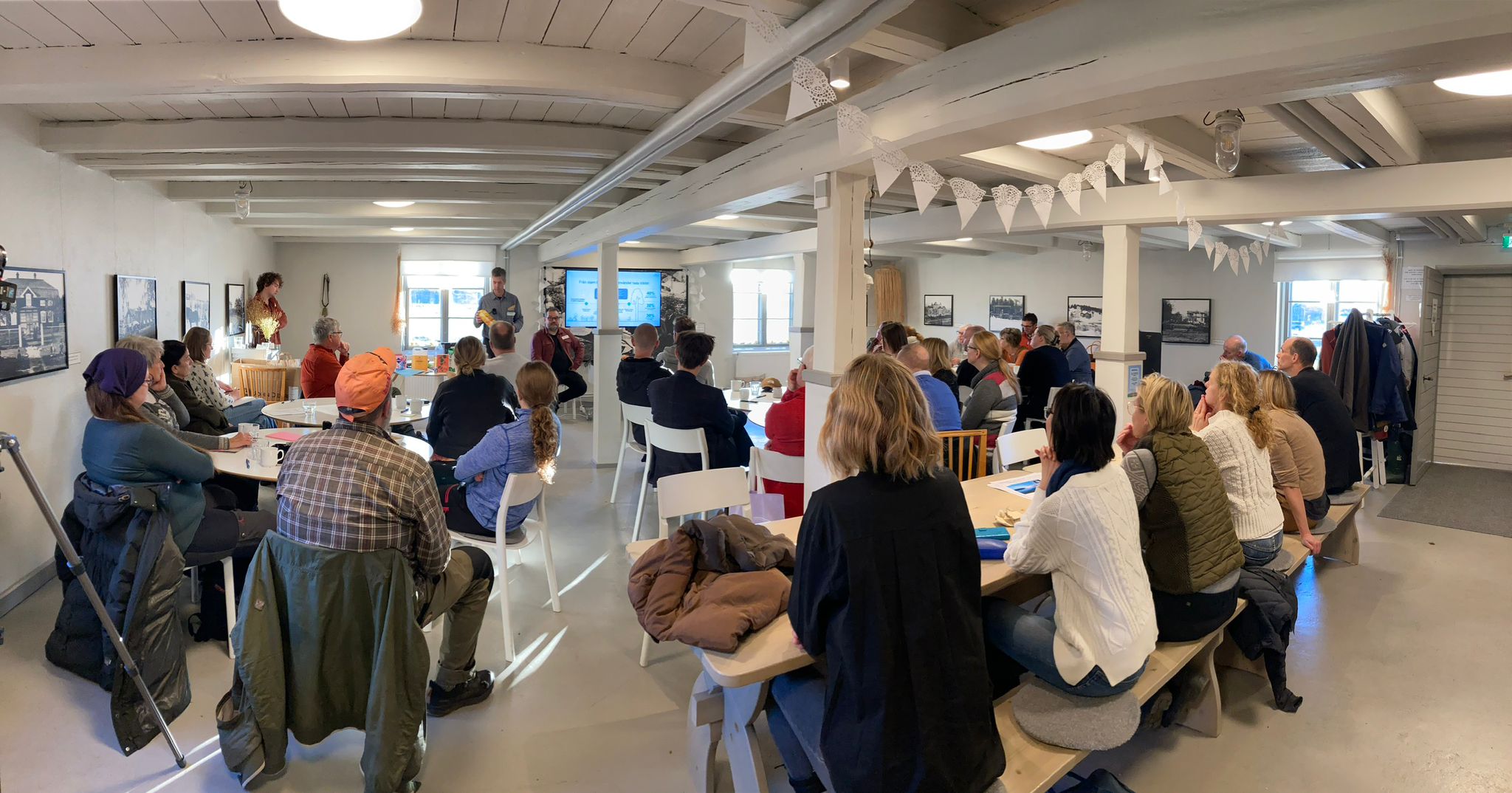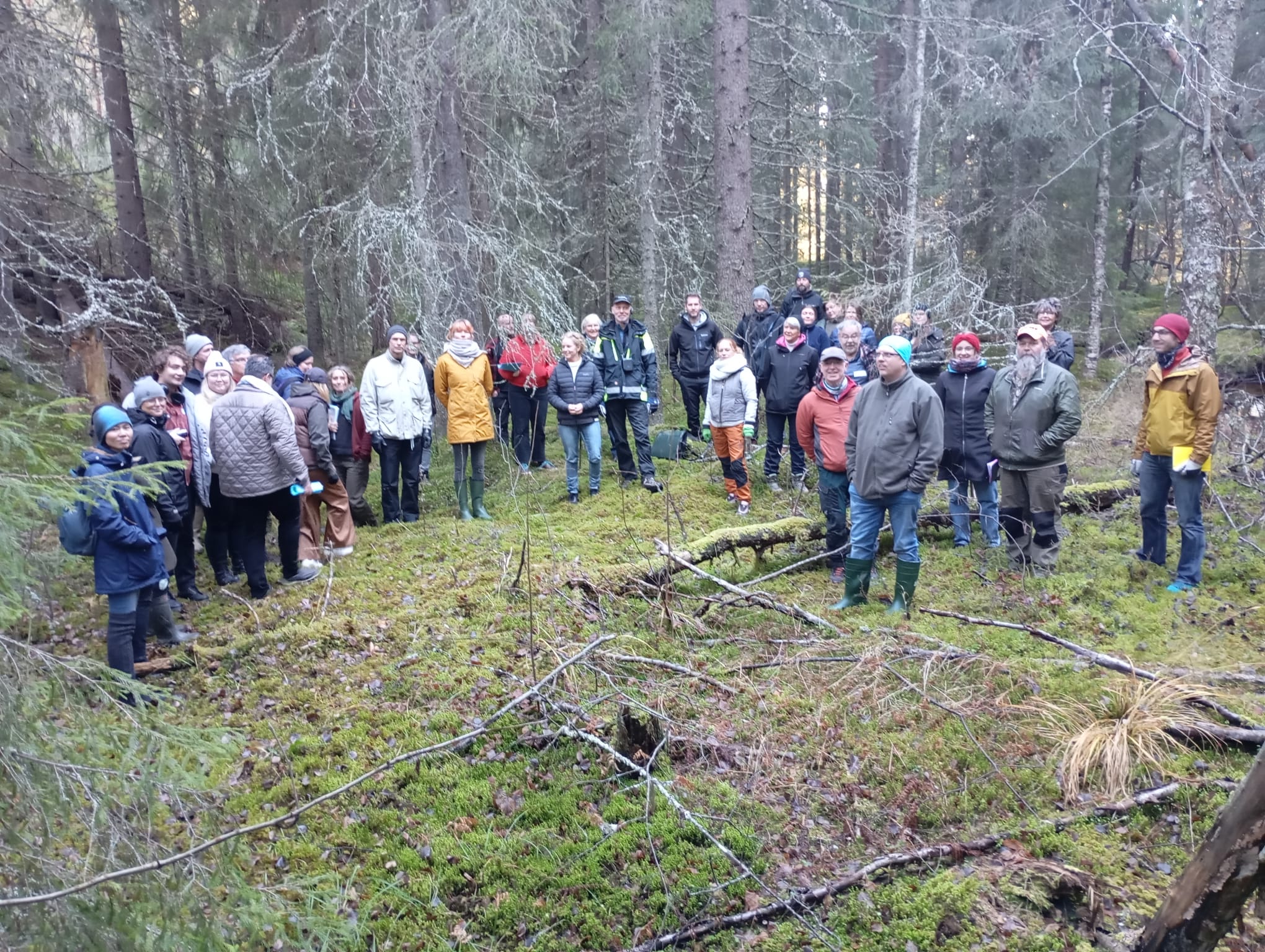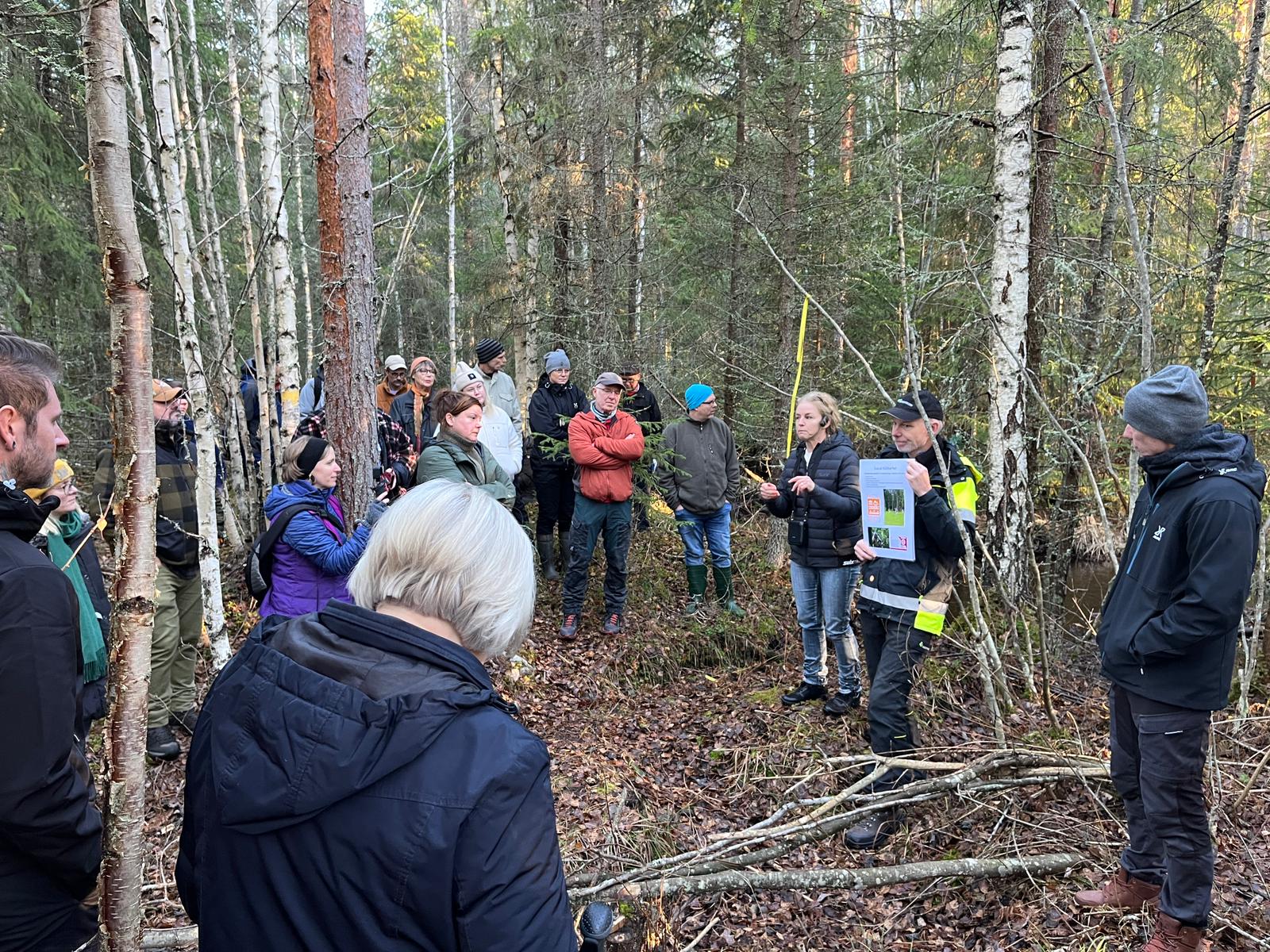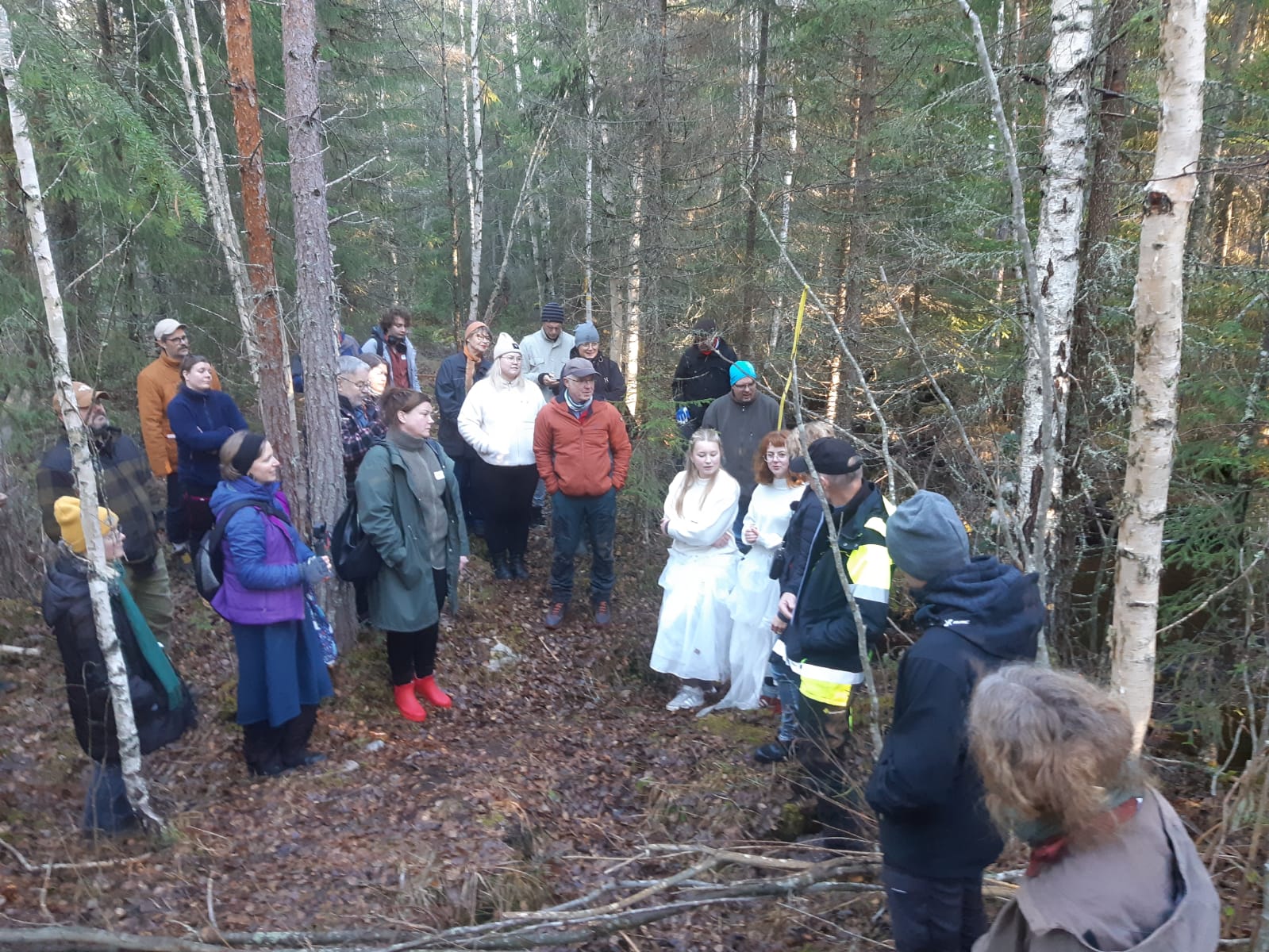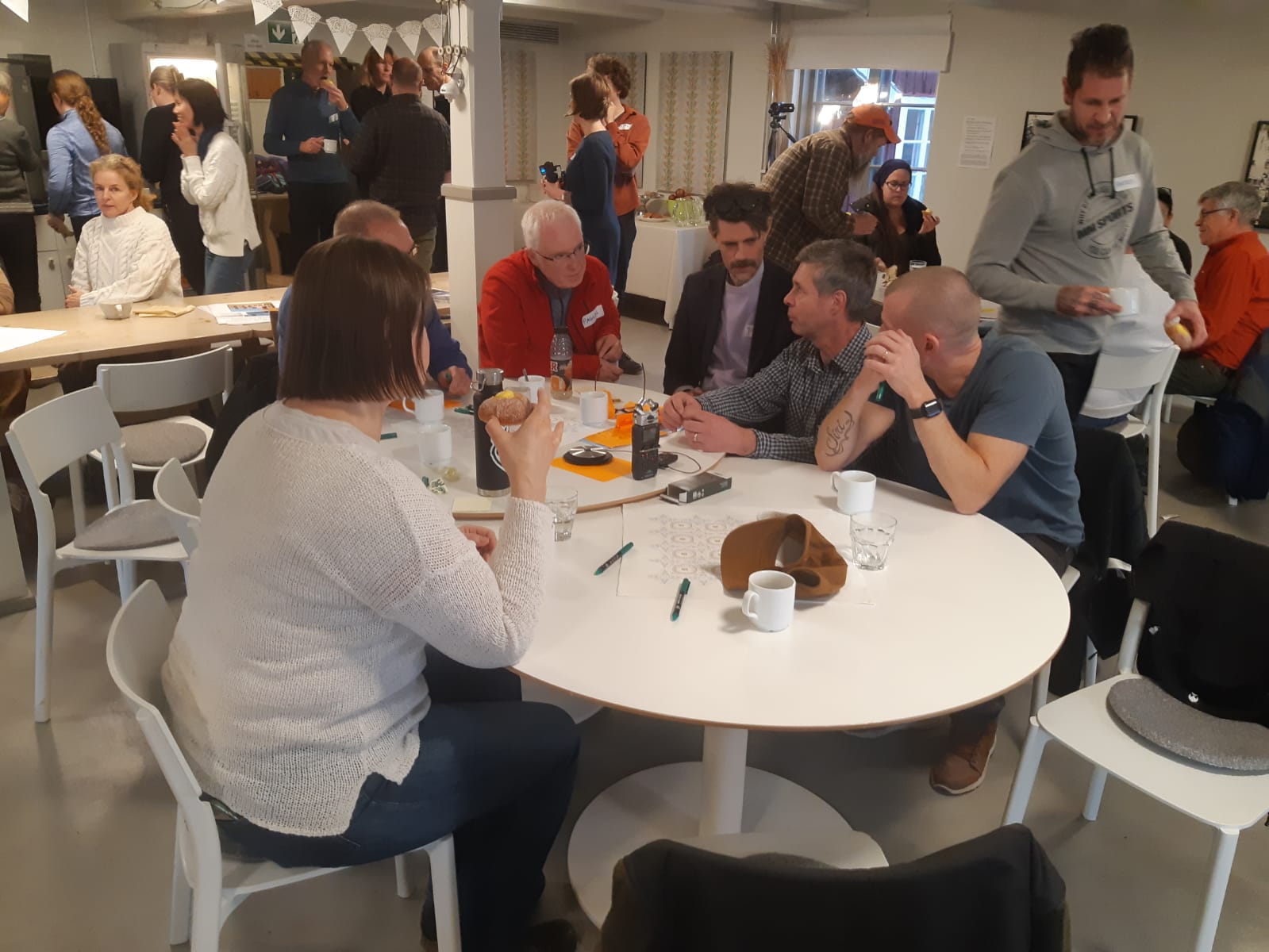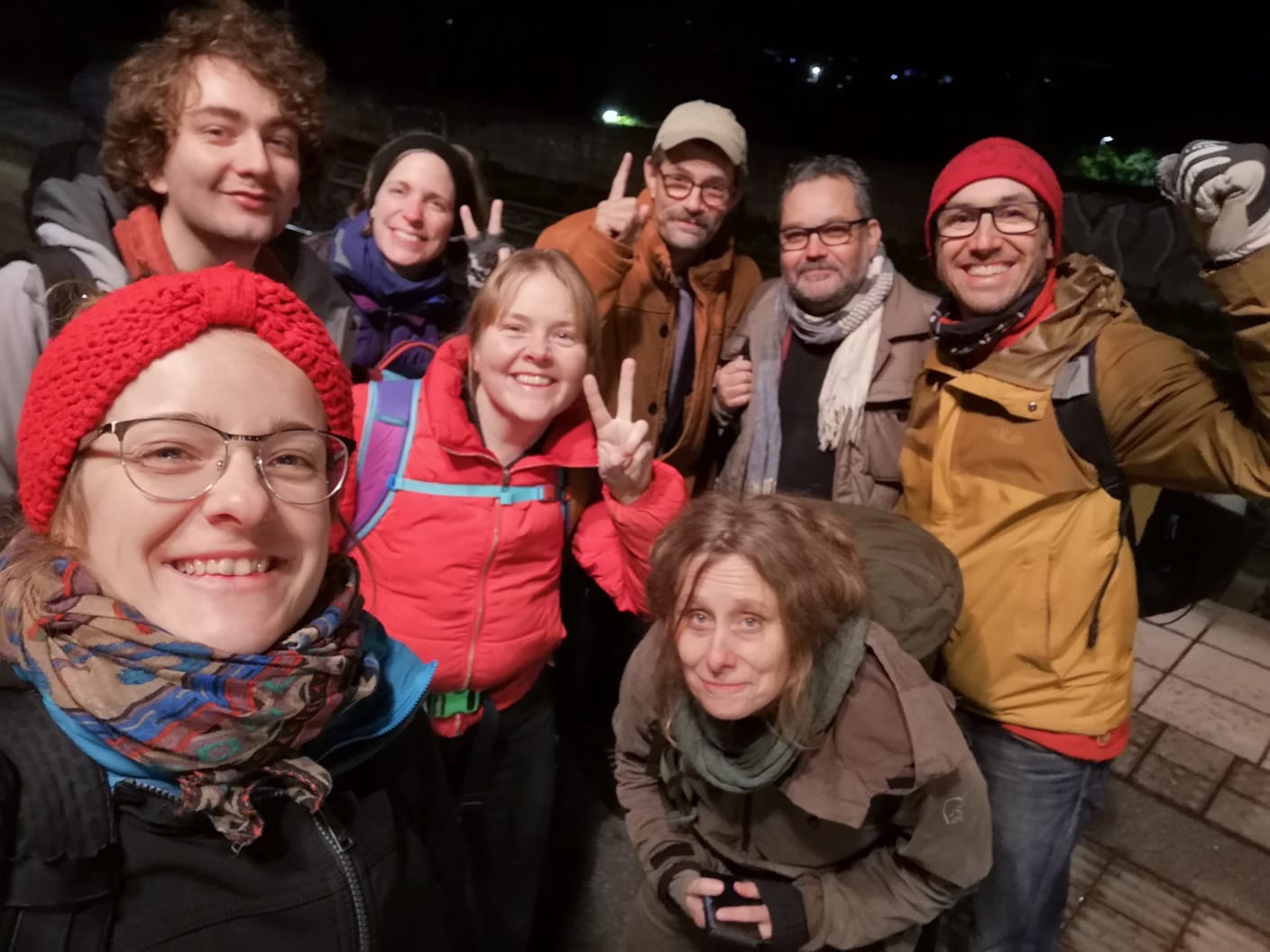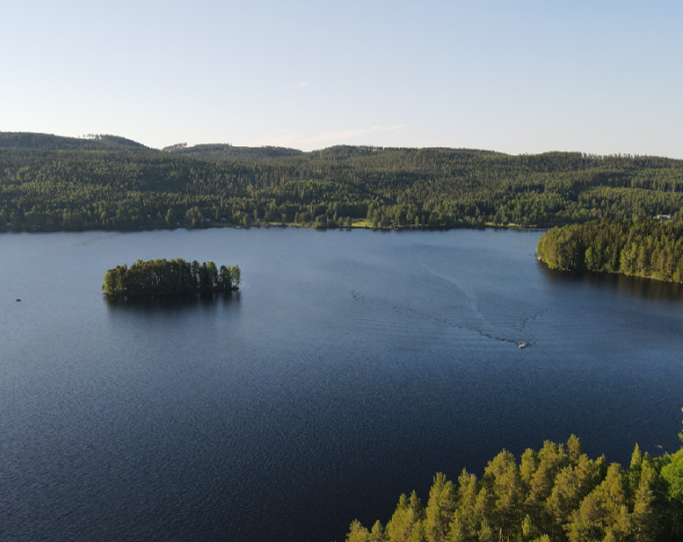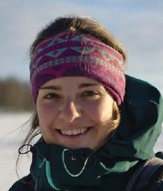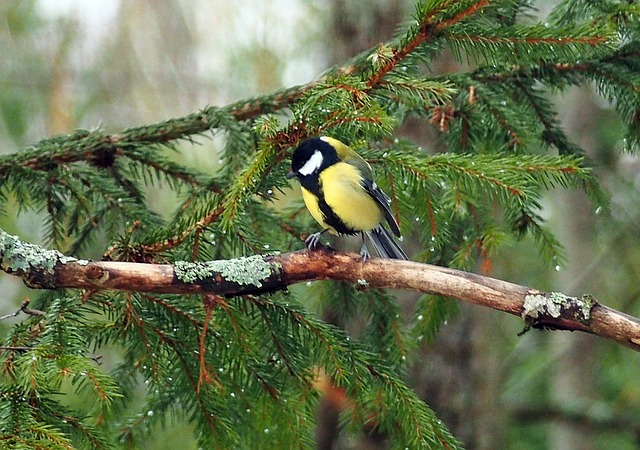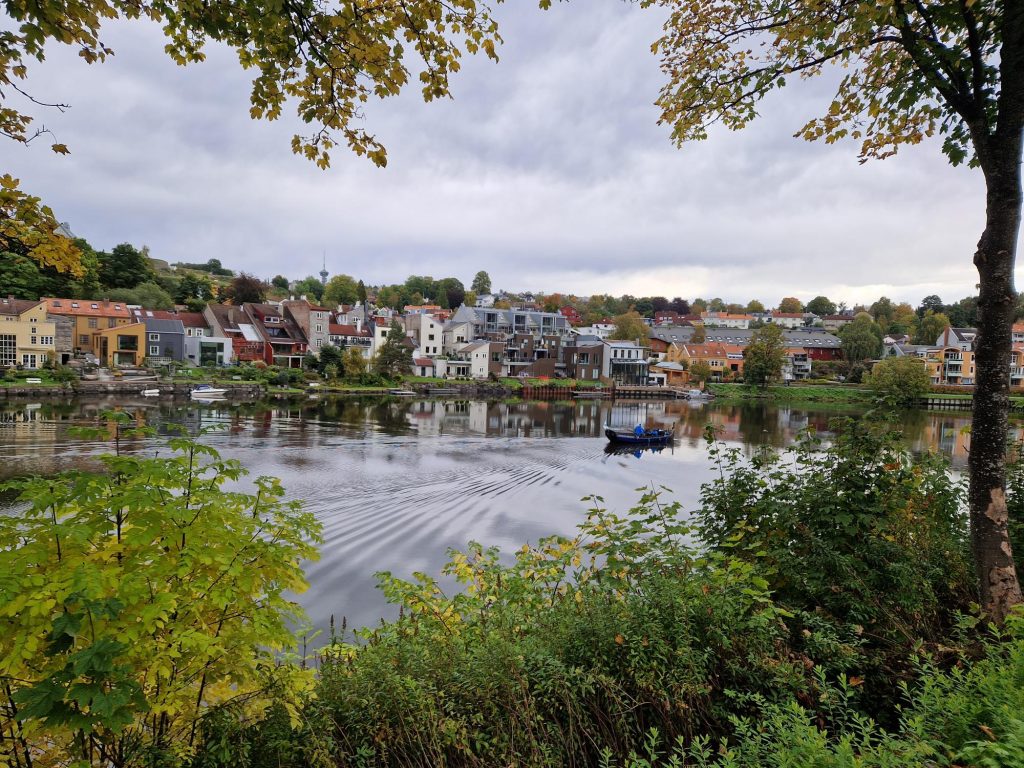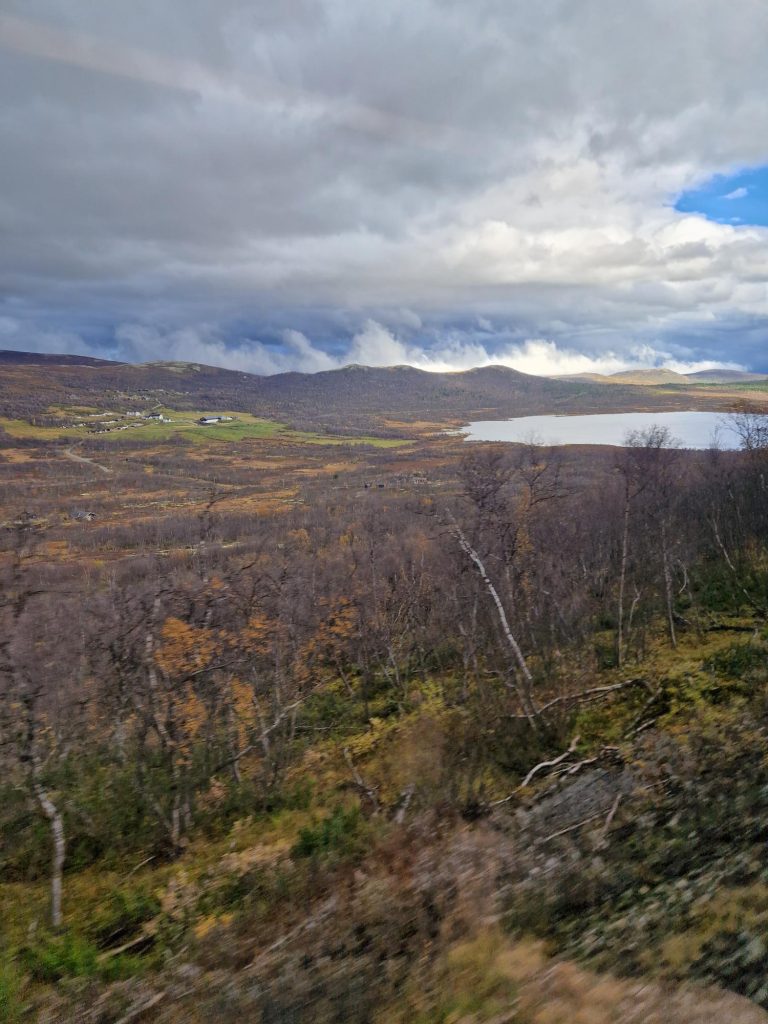How do we balance development and conservation in the Nämdö Archipelago? What is the key to increasing the population and creating meeting places for everyone? These questions were discussed during the Citizens’ Jury second and final meeting on 16 November 2024. Over two weekends, 25 citizens with various connections to the Nämdö Archipelago gathered to discuss and prioritise areas for work on the planned biosphere area.
Guiding the work in relation to the planned Biosphere Area
The main task of the Citizens’ Jury was to create a foundation for the non-profit organization Nämdö Green Archipelago (NGA) in their ongoing work to form a biosphere area. The participants represented different resident groups in the Nämdö Archipelago, from year-round residents to seasonal or summer residents.
The first day consisted of presentations that provided several perspectives on sustainable community development. The second day focused on discussions and exchanges between the participants. These discussions covered opportunities, consequences, and ideas based on project proposals taken from NGA’s biosphere feasibility study. The conversations were based on the presentations from day one, along with the members’ own experiences, values, and ideas. During the day, participants shared their reasoning about the risks and opportunities of the projects and how they affected each other. They also highlighted some additional key actions for NGA to prioritize in its continued work to become a biosphere area.
External Observers
On the second day, two observers participated: a local politician and a representative from WWF, both observing and being inspired by the process.
Balancing Conservation and Development
A biosphere area is designed to work with preservation, development, and support efforts for nature and society, as well as to find local solutions to global problems. These themes became guiding principles in the group discussions throughout the day. Conservation was a central issue that many participants addressed. Several shared their personal experiences of a changing ecology in the archipelago, particularly regarding the negative development of fish stocks. Many talked about how fishing once used to be rich and vital, with even younger participants testifying to a marked decline in the last 10-15 years. The problem was widely acknowledged, but opinions were divided on what can be done locally and what must be addressed at higher levels.
There was agreement that there are local opportunities to affect and improve areas like meadows, wetlands, and shallow bays, and that managing the deer population should be a priority. The deer population was seen by many as both a problem and an opportunity, as it could provide a potential source for local production and processing. Small-scale venison processing already takes place, and many saw this as an opportunity to increase production and create an income stream for the multi-skilled residents of the island.
Balancing the development of communities and businesses with nature conservation and environmental preservation was a recurring theme. An increased number of tourists is good for development but also puts pressure on the area’s nature and environment. Therefore, opinions were divided on how much focus should be placed on strengthening the tourism sector. On the other hand, there was unanimous support for the biosphere area working to increase the number of year-round residents, though it was difficult to agree on how this could be achieved.
A major question was, who should settle in the Nämdö Archipelago? Housing prices in the archipelago are very high and exclude many from the housing market. A group that was specifically mentioned was “digital nomads” — people who have created geographic freedom and flexibility through digital tools and live accordingly. However, for people to move in, a functional economy is needed, either through businesses establishing themselves in the archipelago or through remote work and commuting. It is also important to find target groups who could eventually consider registering their residence in the area, ensuring that tax revenue grows with the population.
Creating and strengthening a social meeting place became a central theme in the discussions. This meeting place also needs to be digitally accessible, as information spread through traditional channels often reaches a limited audience. Opinions about how best to organize information and communication varied greatly among participants — some (mostly older) pointed to the need for communication channels like newsletters and websites, while others (younger participants) saw greater opportunities in digital platforms. Finally, regarding travel and accessibility, there was significant interest in improved solutions for carpooling and boat shuttle groups.
A Starting Point for the Future
One of the strongest impressions from the Citizens’ Jury in the Nämdö Archipelago was the power of people, who typically wouldn’t meet, coming together and creating new networks. Almost all of the members signed up for a common list to keep in touch and stay involved in the future. Through the Citizens’ Jury, NGA has reached a wider audience and received input from more diverse groups. These insights and contributions will form a valuable foundation in the work of creating a biosphere area.
The results from the process will be presented and discussed at a meeting in Nämdö early next year. Interested? Look out for more information on Nämdö Green Archipelago – Nämdö Green Archipelago.
Research on the Process
A number of researchers from Stockholm University, Uppsala University, and Södertörn University observed the process and noted how it worked in practice. The researchers are interested in better understanding how this type of local dialogue and participation can support the creation and management of multifunctional landscapes. The Citizens’ Council is part of the LANDPATHS research project, which aims to promote multifunctional landscapes that are both rich in biodiversity and meet the needs of various stakeholders.
Citizens’ Juries in Landscape Planning
Citizens’ Juries involve a randomly selected group of citizens who hear different perspectives, opinions, and expert knowledge on an issue of general interest, and then discuss the issue in depth. This method differs from other forms of citizen engagement, such as citizen dialogues. In a Citizens’ Council, citizens are chosen according to criteria that ensure broad public representation in a small group. The process typically ends with a shared conclusion or recommendations. Citizens’ Councils have been used in several countries to discuss complex issues, including sustainable development and climate change.
For more information, contact Tim Daw.
